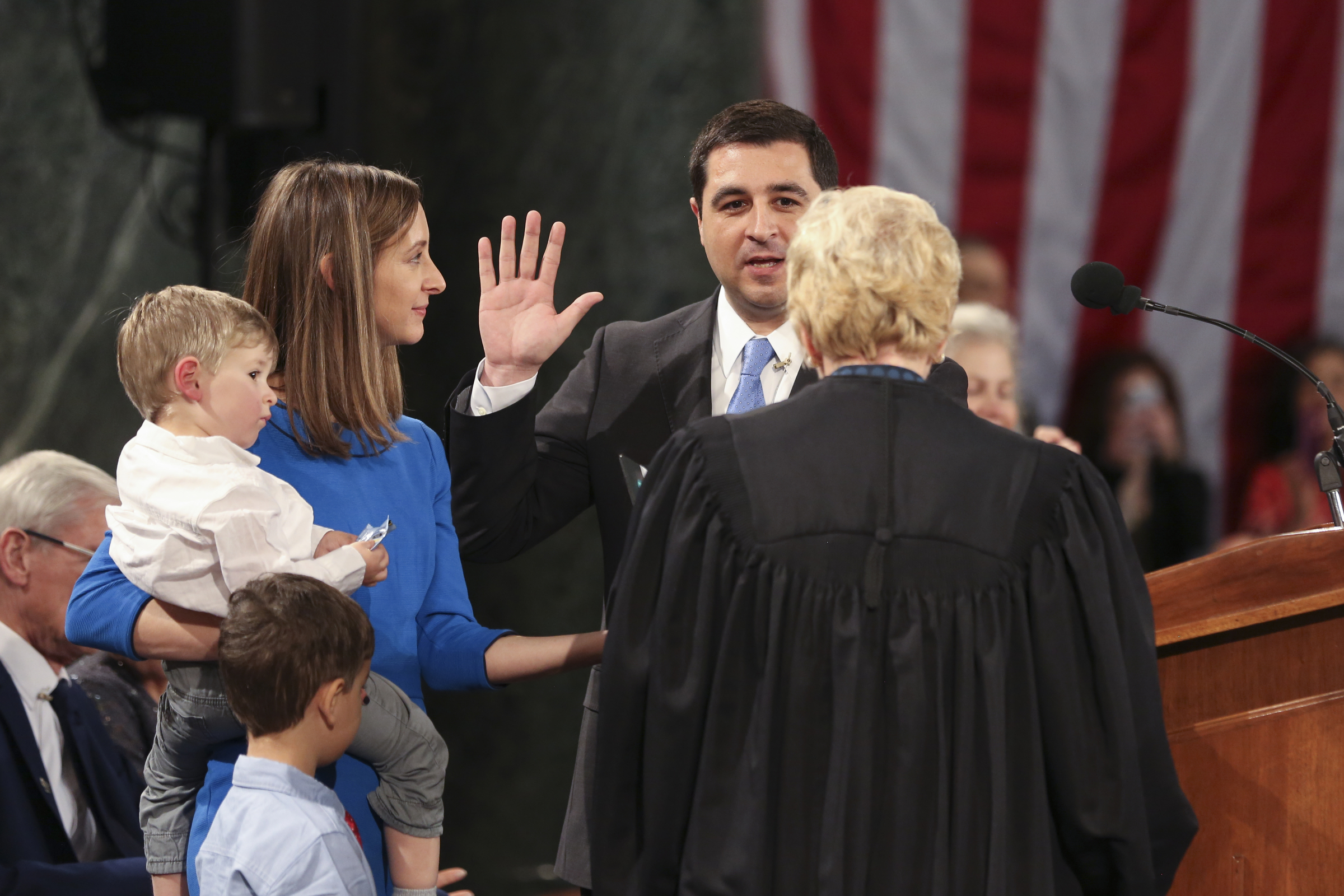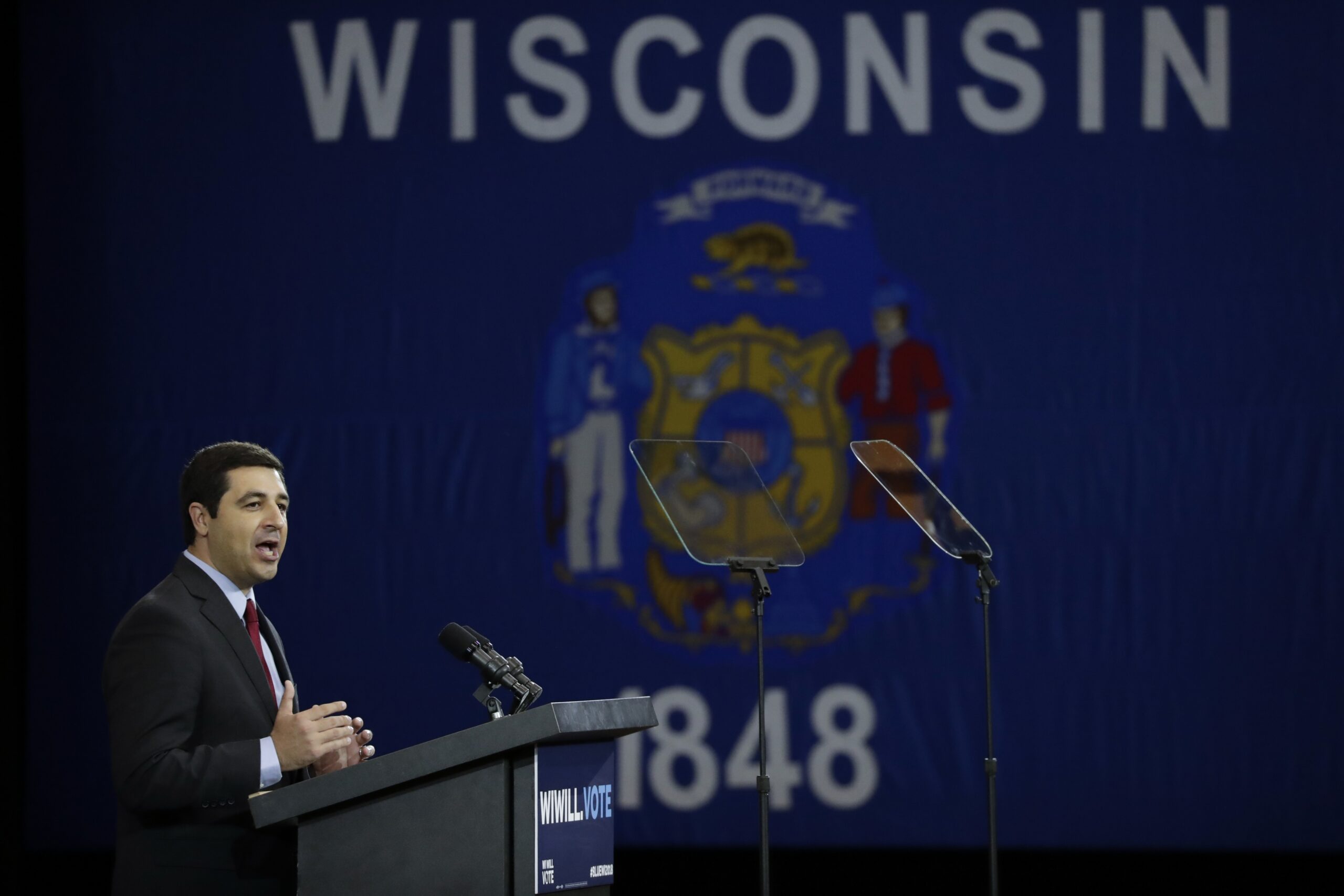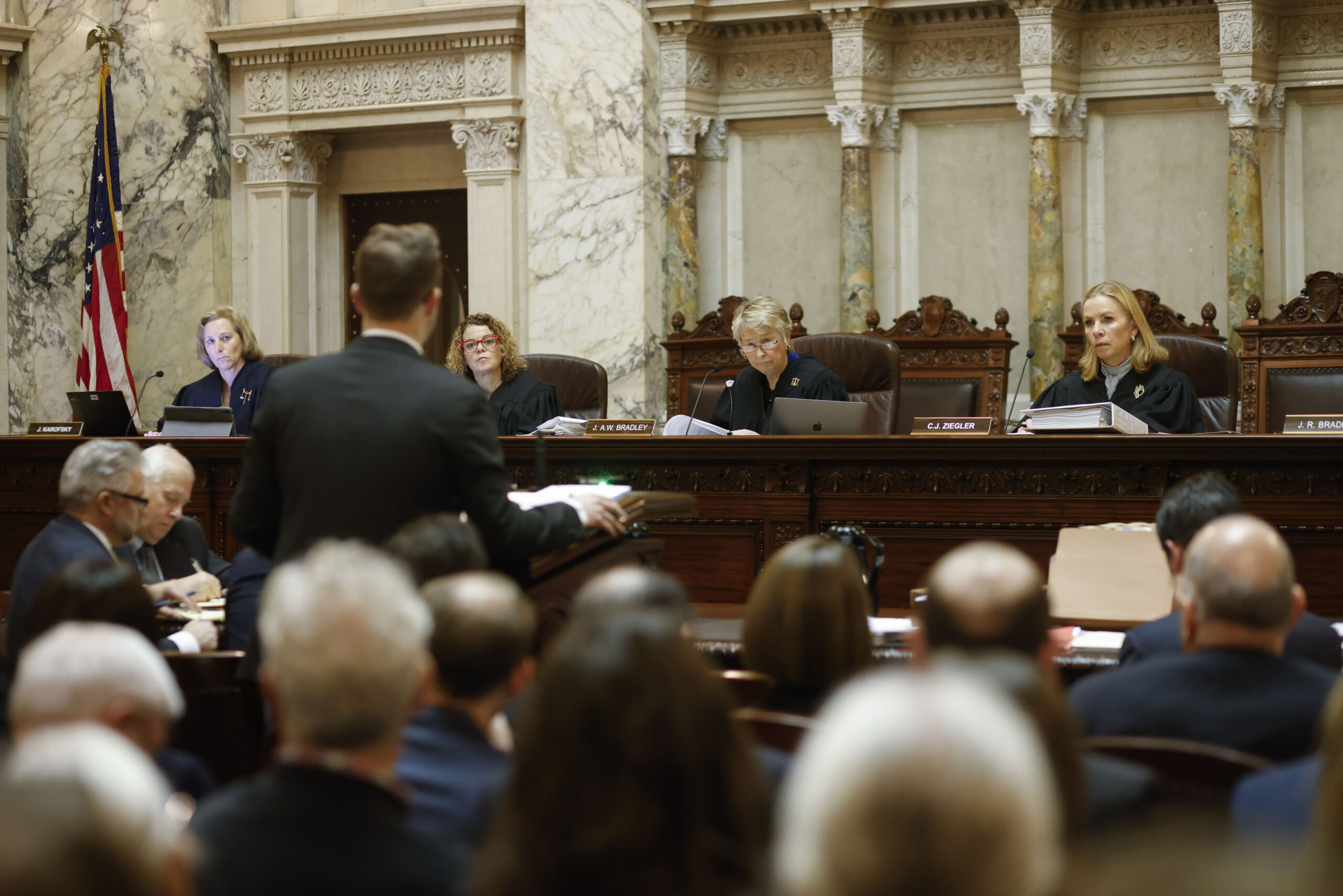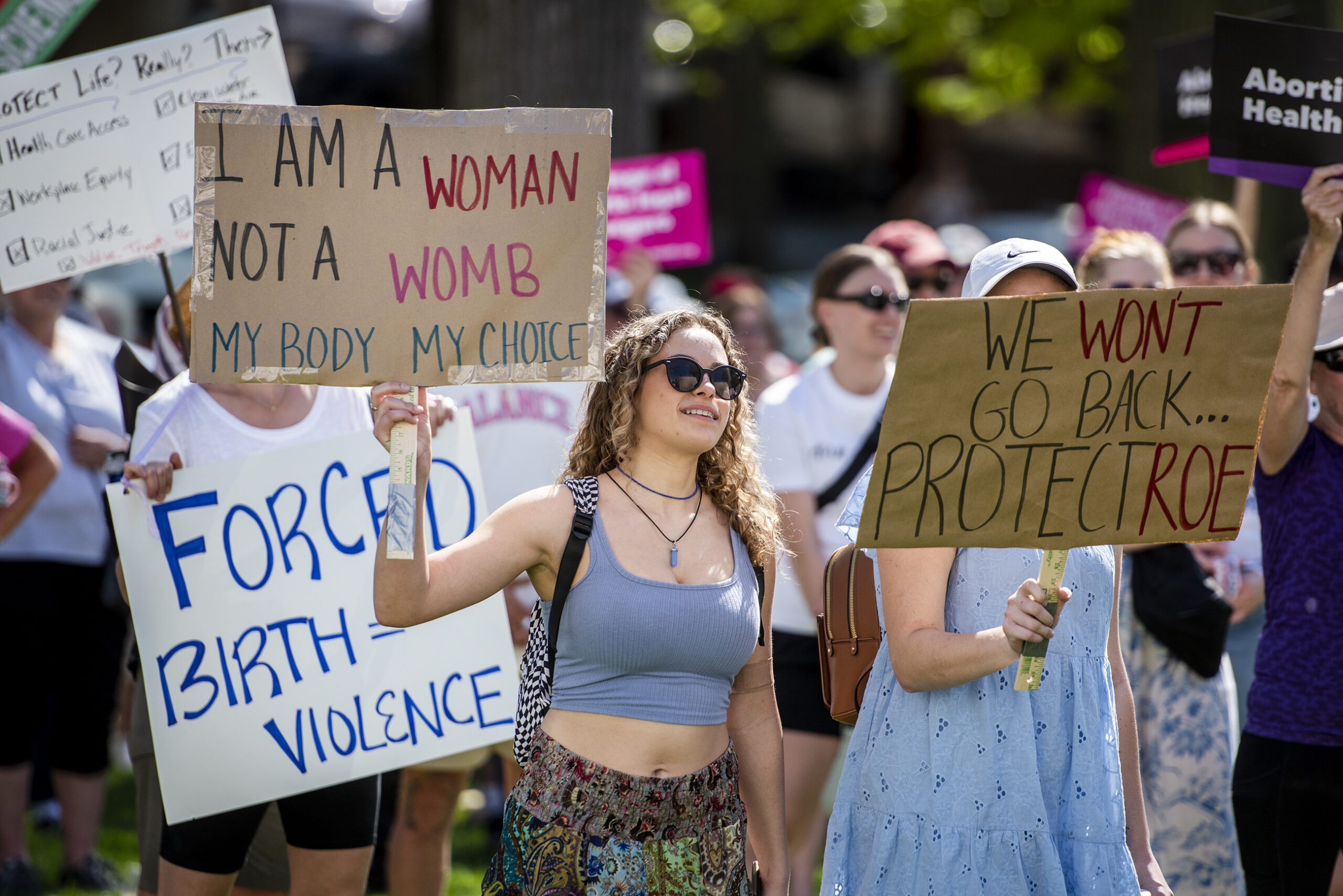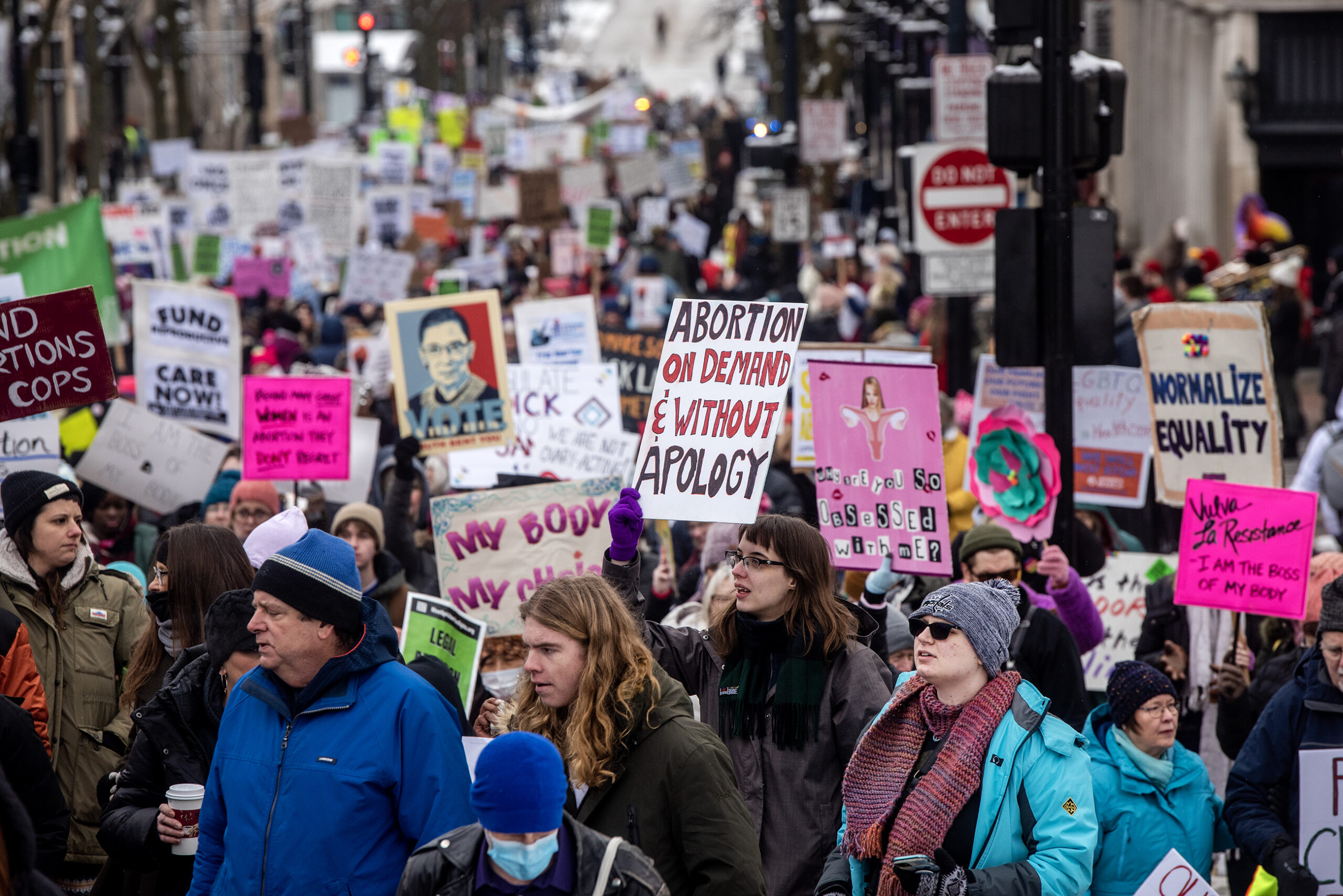This week, the Wisconsin Supreme Court heard arguments in a case that could shape the future of reproductive rights in the state.
The high court is weighing whether a 19th century state law should criminalize abortion providers.
The lawsuit, filed in 2022, was brought by state Attorney General Josh Kaul after the U.S. Supreme Court struck down federal abortion protections by overturning Roe v. Wade.
Stay informed on the latest news
Sign up for WPR’s email newsletter.
“We went about 15 months in Wisconsin where women were denied access to safe and legal abortion in the state and that had a lot of consequences for people’s lives,” said Kaul.
Kaul recently joined WPR’s “Wisconsin Today,” to discuss Monday’s arguments before the state Supreme Court.
The following has been edited for clarity and brevity.
Kate Archer Kent: What are your takeaways from oral arguments?
Josh Kaul: Fortunately, reproductive freedom has been restored in Wisconsin for now. But sadly, we continue to see the impacts in other states like Texas, where some people have lost their lives because of delayed care.
There were a lot of good questions about what this law means. It makes clear that if this far-right extreme interpretation of this 1849 law is imposed, it’s going to have devastating health consequences for women in Wisconsin.
I’m hopeful that we will succeed, but we’ll see what the court decides.
KAK: Your team argued there was an implied repeal of the 1849 law. How would that work in the legal realm?
JK: We have a few different arguments as to why we believe that that pre Civil War law does not apply currently. Even though Roe has been overturned, one of the arguments is that the law has been impliedly repealed.
There’s a whole series of laws that regulate legal abortion in Wisconsin and make clear when you can and when you can’t have an abortion in Wisconsin, and our position is that you can’t simultaneously have laws that allow for abortion while having a broad abortion ban in place that would create confusion for people. When you have that kind of system, the case law supports the conclusion that the old law has been repealed by implication.
KAK: Sheboygan County’s district attorneys argued that the 1985 law didn’t legalize abortion and that it can coexist with the 1849 ban. What do you make of that argument?
JK: Look, what we need is clarity on state law regarding this issue, so that we can make sure that doctors and women who become pregnant know what their rights are and know what they’re going to be able to do. That’s what we’ve been seeking throughout this process, in addition to seeking to protect women’s ability to access reproductive health care.
I’m hopeful, but I do also think it’s important for our Legislature to take action. We have a much more evenly divided state Legislature than we’ve had before. We need to make sure that the Legislature takes action to protect access to reproductive freedom in Wisconsin. That’s the long-term solution. We need to ensure that reproductive reproductive freedom is respected.
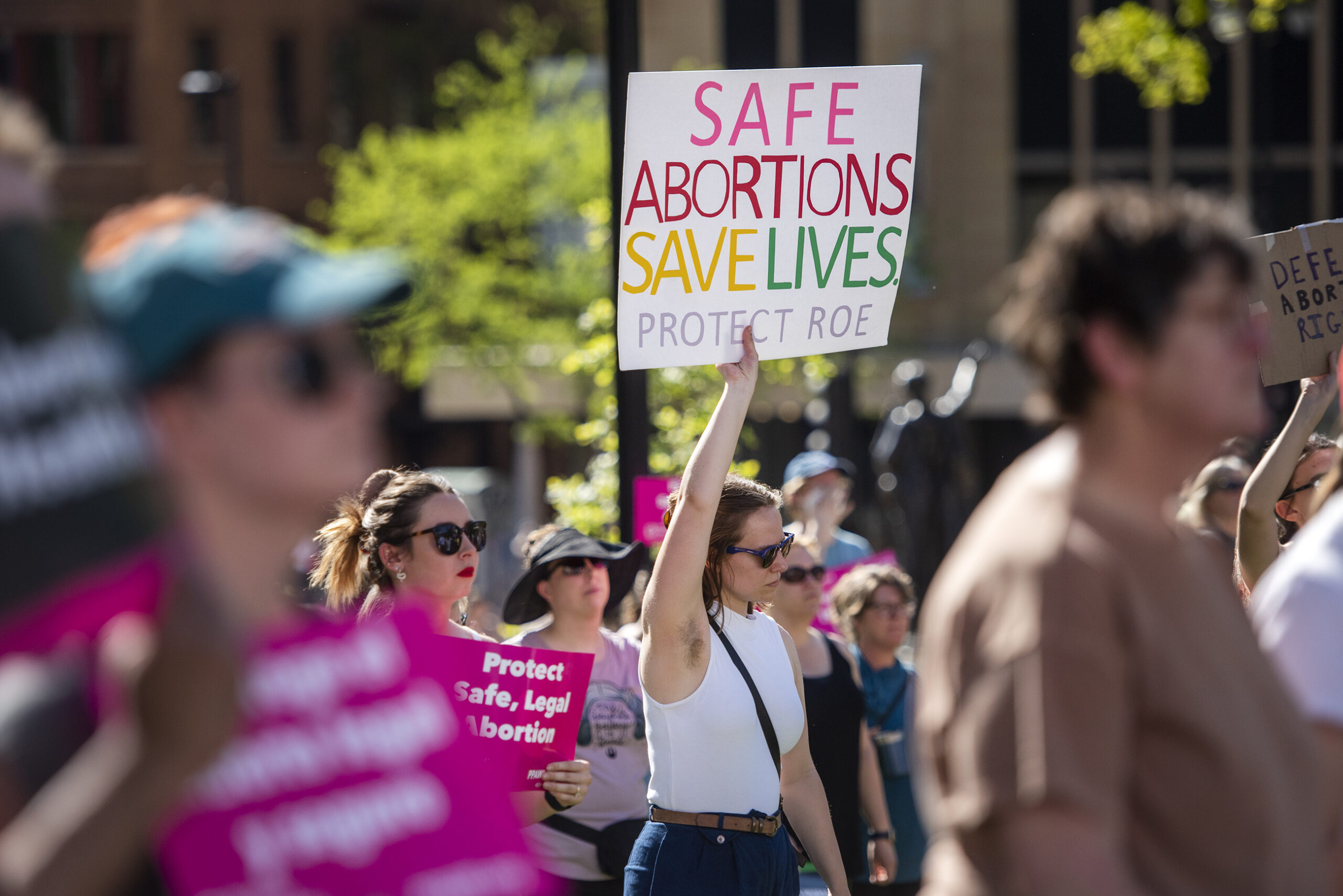
KAK: A Wisconsin law prohibits abortion after 20 weeks. What more do you want to see there in the law?
JK: What we have are not protections. We have restrictions on abortion in state law. I’d like to see some changes made that ensure that people are able to get the reproductive health care they need, and that decisions are made between women and their doctors or their spouses or their spiritual advisors — whoever it is that they want to talk to — but not having the government intervene.
We need to make sure it’s there in statute, but I think there’s a lot of room for debate. This is obviously a topic that people have very strong feelings about, but let’s have that debate. This is an issue that’s important to Wisconsinites. I think having our Legislature take that up is critical.
KAK: A lawsuit from Planned Parenthood, in comparison to the one you filed, discusses whether the 1849 ban violates abortion rights in the Wisconsin Constitution. What impact could these cases have on each other?
JK: We’ll see ultimately whether the court decides both cases or how it goes about doing that. It’s my view that a ban, like the 1849 law, would be unconstitutional under basic rights guaranteed by the Wisconsin Constitution.
There’s a long line of Wisconsin cases that clearly infringe on bodily autonomy and that need to be very carefully scrutinized by courts.
Our basic notions about liberty in this country and in this state, and protecting those rights with a constitutional ruling, I think would also help ensure that access to safe and legal abortion is protected in Wisconsin.
Wisconsin Public Radio, © Copyright 2025, Board of Regents of the University of Wisconsin System and Wisconsin Educational Communications Board.
